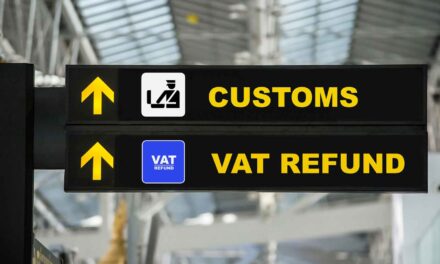As a popular destination for tourists, workers, and students alike, Dubai has a complex immigration system that can be confusing to navigate. Whether you’re planning a short visit or a long-term stay, it’s important to understand the basics of Dubai immigration in order to avoid any issues or complications. In this article, I will provide answers to some of the most common Dubai immigration questions and help you understand the rules and regulations that govern immigration in the city.
Dubai Immigration Basics: Before diving into the specifics of residency, work, and study visas, it’s important to understand the basic requirements for entering Dubai. Depending on your country of origin and the purpose of your visit, you may need to obtain a visa prior to arrival or upon arrival in Dubai. Additionally, there are certain documents and fees that you will need to provide in order to obtain a visa and enter the country legally. Understanding these basics will help you avoid any issues or complications when entering Dubai.
Residency in Dubai: For those planning to stay in Dubai for an extended period of time, obtaining residency is a must. There are several types of residency visas available, each with its own requirements and restrictions. Whether you’re planning to work, study, or retire in Dubai, understanding the different types of residency visas and the application process is essential. By following the proper procedures and submitting the necessary documents, you can obtain a residency visa and enjoy all that Dubai has to offer.
Key Takeaways
- Understanding the basics of Dubai immigration is essential for avoiding issues and complications.
- Residency visas are a must for those planning to stay in Dubai for an extended period of time.
- Whether you’re planning to work, study, or retire in Dubai, there are different types of visas available to suit your needs.
Dubai Immigration Basics
As someone who has gone through the immigration process in Dubai, I understand that it can be overwhelming and confusing. In this section, I will provide you with the basics of Dubai immigration, including visa types, requirements, and application process.
Visa Types
Dubai offers a variety of visa types to suit different purposes of travel. Some of the most common visa types include:
- Tourist visa: This visa is valid for 30 days and can be extended for another 30 days.
- Employment visa: This visa is issued to those who have a job offer in Dubai.
- Business visa: This visa is issued to those who are visiting Dubai for business purposes.
- Investor visa: This visa is issued to those who are investing in Dubai.
- Residence visa: This visa is issued to those who are planning to live in Dubai.
- Student visa: This visa is issued to those who are studying in Dubai.
- Family visa: This visa is issued to family members of those who have a residence visa in Dubai.
Visa Requirements
The visa requirements for Dubai vary depending on the type of visa you are applying for. However, some of the common requirements include:
- Passport: Your passport should be valid for at least six months from the date of entry into Dubai.
- Visa application form: You will need to fill out a visa application form and provide all the necessary information.
- Photograph: You will need to provide a recent passport-sized photograph.
- Proof of accommodation: You will need to provide proof of your accommodation in Dubai.
- Proof of financial means: You will need to provide proof that you have enough funds to cover your stay in Dubai.
- Medical certificate: You may need to provide a medical certificate if you are applying for a long-term visa.
Visa Application Process
The visa application process for Dubai is straightforward. You can apply for a visa online or through a travel agency. Some of the common steps in the application process include:
- Fill out the visa application form.
- Provide all the necessary documents.
- Pay the visa fee.
- Wait for the visa to be processed.
In conclusion, Dubai immigration can be a complex process, but understanding the basics can make it easier. Make sure to check the specific requirements for your visa type and follow the application process carefully.
Residency in Dubai
Dubai is a popular destination for expats from all over the world. If you are planning to move to Dubai, you will need to apply for a residency visa. In this section, I will cover the residency visa process, sponsorship rules, and renewal and cancellation procedures.
Residency Visa Process
To apply for a residency visa in Dubai, you will need to have a sponsor. Your sponsor can be your employer, a family member, or a UAE national. Your sponsor will need to apply for your residency visa on your behalf, and you will need to provide all the necessary documents.
The residency visa process involves several steps, including a medical exam, biometric data collection, and a security check. You will also need to provide a copy of your passport, a passport-size photo, and a copy of your sponsor’s Emirates ID.
Once your residency visa is approved, you will need to apply for a UAE ID card. Your UAE ID card is a mandatory requirement for all residents in Dubai and is used for various purposes, including opening bank accounts and accessing government services.
Sponsorship Rules
In Dubai, your sponsor is responsible for your visa and residency status. If you are sponsored by an employer, you will need to have a valid employment contract and a work permit. If you are sponsored by a family member, you will need to provide proof of your relationship.
If you decide to change your sponsor, you will need to cancel your current residency visa and apply for a new one. The process of changing sponsors can be time-consuming and may involve additional fees.
Renewal and Cancellation
Residency visas in Dubai are typically valid for three years. You will need to renew your residency visa before it expires to avoid any penalties. The renewal process involves submitting all the necessary documents and paying the renewal fees.
If you decide to leave Dubai permanently, you will need to cancel your residency visa. Your sponsor will need to cancel your visa on your behalf, and you will need to provide all the necessary documents. Once your visa is cancelled, you will need to leave Dubai within 30 days.
In conclusion, the residency visa process in Dubai can be complex, but with the right guidance and support, it can be a smooth and hassle-free experience. Make sure you understand the sponsorship rules and renewal and cancellation procedures to avoid any issues with your residency status.
Work in Dubai
If you are planning to work in Dubai, you need to obtain a work visa. The process for obtaining a work visa in Dubai is straightforward, but you need to ensure that you meet all the requirements.
Work Visa Process
To obtain a work visa in Dubai, you need to have a job offer from a company in Dubai. The company will be your sponsor, and they will apply for your work visa on your behalf. Once your work visa is approved, you can enter Dubai and start working.
To apply for a work visa, you need to provide the following documents:
- Passport with a minimum validity of 6 months
- Passport-sized photographs
- Educational certificates
- Work experience certificates
- Health certificate
- Police clearance certificate
It is important to note that the work visa process can take up to 2-3 weeks, and it is advisable to start the process well in advance.
Labor Laws
Dubai has a well-defined labor law system that protects the rights of employees. The labor laws in Dubai include regulations for working hours, overtime pay, annual leave, sick leave, and termination of employment.
The working hours in Dubai are generally 8 hours per day and 48 hours per week. If you work more than 8 hours per day, you are entitled to overtime pay. You are also entitled to annual leave, which is calculated based on the number of years you have worked for the company.
In case of termination of employment, the company is required to provide a notice period or compensation in lieu of notice. The labor laws in Dubai ensure that employees are treated fairly, and their rights are protected.
Changing Jobs
If you want to change jobs in Dubai, you need to obtain a No Objection Certificate (NOC) from your current employer. The NOC is a document that confirms that your current employer has no objection to you changing jobs.
Once you obtain the NOC, you can start looking for a new job in Dubai. You will need to provide the NOC to your new employer, who will then apply for a new work visa on your behalf.
It is important to note that changing jobs in Dubai can be a lengthy process, and it is advisable to start the process well in advance.
Study in Dubai
If you are interested in studying in Dubai, there are a few things you should know about the student visa process and study opportunities in the city.
Student Visa Process
To study in Dubai, you will need to obtain a student visa. Here are the basic steps to follow:
- Apply to a recognized Dubai university and receive an acceptance letter.
- Gather the necessary documents, which typically include a valid passport with at least six months of validity, a completed study visa application form, and recent passport-sized photos with a white background.
- Submit your application and documents to the Dubai Immigration Office.
- Wait for your visa to be processed and approved.
It is important to note that the specific requirements and process may vary depending on your nationality and the university you are applying to. Be sure to check with your university and the Dubai Immigration Office for the most up-to-date information.
Study Opportunities
Dubai is home to a number of top-ranked universities and colleges, offering a wide range of study opportunities in various fields. Some of the most popular universities in Dubai include:
- American University in Dubai
- University of Dubai
- Dubai Medical College for Girls
- Zayed University
- Heriot-Watt University Dubai
In addition to these universities, there are also a number of vocational and technical schools, as well as language schools, offering specialized training and education.
Dubai is known for its strong focus on innovation and technology, so students interested in these fields may find particularly exciting opportunities in the city. However, there are also many options for students interested in business, healthcare, engineering, and other fields.
Overall, studying in Dubai can be a great opportunity to gain a unique international perspective and access top-quality education in a dynamic and exciting city.
Dubai Immigration Laws and Regulations
As a foreign national entering Dubai, it is important to be aware of the immigration laws and regulations that govern your stay. Failure to comply with these laws can result in penalties, fines, and even deportation. In this section, I will discuss the key regulations that you need to know about.
Overstay Penalties
If you overstay your visa in Dubai, you will be subject to penalties and fines. The amount of the penalty depends on the length of the overstay and the type of visa you hold. Overstaying for up to 10 days will result in a fine of AED 200 per day. Overstaying for more than 10 days will result in a fine of AED 100 per day, plus an additional AED 100 for each day beyond the first 10 days. If you overstay for more than 60 days, you will be banned from entering the UAE for a period of six months.
Legal Disputes
If you find yourself in a legal dispute in Dubai, it is important to know your rights and responsibilities. The General Directorate of Residency and Foreigners Affairs in Dubai provides legal services, including a request for legal advice, requests for complaints and disputes that arise between workers/labourers and companies that issue their work permit, a request to cancel a residence permit, a request to renew a residence permit, and a request to file an appeal against a decision by the General Directorate of Residency and Foreigners Affairs.
It is important to note that Dubai operates under Sharia law, which is different from the legal system in many Western countries. As such, it is important to seek legal advice from a qualified lawyer who is familiar with the local legal system. It is also important to keep in mind that legal proceedings in Dubai can be lengthy and complex, so it is important to be patient and persistent.
In summary, understanding Dubai’s immigration laws and regulations is crucial for a smooth and hassle-free stay in the UAE. Be sure to comply with these laws to avoid any penalties or legal disputes.
Dubai Immigration Services
Dubai offers a wide range of immigration services to help people navigate the complex process of obtaining visas, residency permits, and citizenship. These services can be broadly classified into two categories: Government Services and Private Services.
Government Services
The General Directorate of Residency and Foreigners Affairs (GDRFA) is the official government entity responsible for immigration services in Dubai. The GDRFA offers a variety of services to help people obtain visas, residency permits, and citizenship. Some of the most commonly used services are:
- Visa application and renewal
- Residency permit application and renewal
- Citizenship application
- Emirates ID registration and renewal
- Legal advice and dispute resolution services
To access these services, you can visit the GDRFA website or visit one of their offices in person. The GDRFA also has a mobile app that allows you to access many of their services from your smartphone.
Private Services
In addition to government services, there are also many private companies that offer immigration services in Dubai. These companies can help you with everything from visa applications to relocation services. Some of the most commonly used private services are:
- Visa application assistance
- Document translation and attestation
- Relocation services
- Job search assistance
- Legal advice and representation
When choosing a private immigration service provider, it is important to do your research and choose a reputable company with a track record of success. You should also be aware that private immigration services can be expensive, so be sure to compare prices and services before making a decision.
Overall, Dubai offers a wide range of immigration services to help people navigate the complex process of obtaining visas, residency permits, and citizenship. Whether you choose to use government services or private services, it is important to be well-informed and prepared to ensure a smooth and successful immigration process.
Frequently Asked Questions
What documents are required for a Dubai visa application?
To apply for a Dubai visa, you will need to submit your passport, which should be valid for at least six months from the date of entry into Dubai. You will also need to provide a passport-size photograph, a completed visa application form, and any other documents required for the specific type of visa you are applying for. This may include proof of travel arrangements, proof of accommodation, and proof of financial means to support yourself during your stay in Dubai.
What is the processing time for a Dubai visa?
The processing time for a Dubai visa can vary depending on the type of visa you are applying for. Generally, it can take anywhere from two to ten working days to process a visa application. However, it is recommended that you apply for your visa well in advance of your intended travel dates to avoid any delays.
How long can I stay in Dubai on a visit visa?
The duration of your stay in Dubai on a visit visa will depend on the type of visa you have been issued. A short-term visit visa is typically valid for 30 days and can be extended for an additional 30 days. A long-term visit visa is valid for 90 days and can also be extended for an additional 90 days.
How do I renew my Dubai visa?
To renew your Dubai visa, you will need to submit a new visa application and provide all the necessary documents. You should apply for a visa renewal at least two weeks before your current visa expires. If your visa has already expired, you may be subject to fines and penalties.
What are the requirements for a work visa in Dubai?
To obtain a work visa in Dubai, you will need to have a valid job offer from a company in Dubai. The company will then apply for a work permit on your behalf. Once the work permit has been approved, you can apply for a work visa. You will need to provide your passport, a completed visa application form, and any other documents required by the Dubai immigration authorities.
What is the process for obtaining a residency visa in Dubai?
To obtain a residency visa in Dubai, you will need to have a sponsor, such as an employer or family member who is a resident of Dubai. Your sponsor will need to apply for a residency visa on your behalf. You will need to provide your passport, a completed visa application form, and any other documents required by the Dubai immigration authorities. Once your application has been approved, you will be issued a residency visa, which will allow you to live and work in Dubai.

























